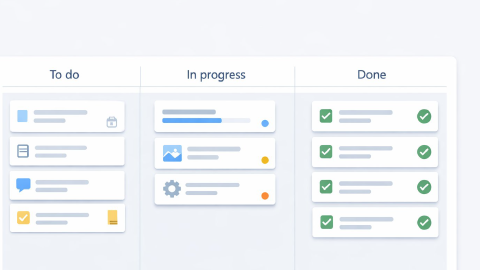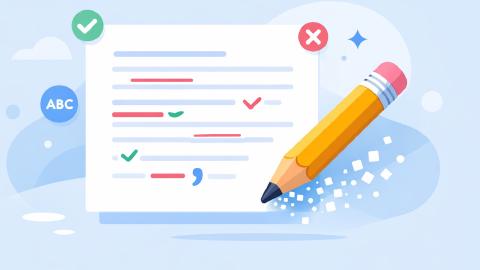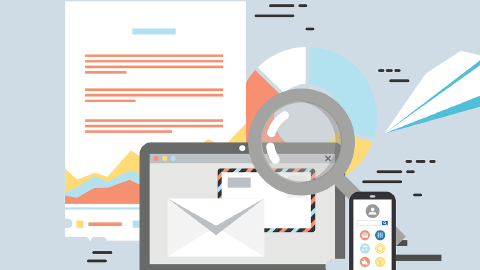Budget Tracker Template: Stay on Top of Your Finances Today
Manage your income and expenses using our free budget tracker template.
Managing your finances can be tough stuff. If you’re new to budget tracking, it can be extremely tedious and overwhelming.
The secret to staying on top of your finances? By using a budget tracker.
In fact, according to Big Think, using a budget tracker can help you feel less stressed and more in-control.
If you’ve never used a budget tracker, this can feel a bit daunting. Fortunately, there are so many budget trackers out there that can empower you to take charge of your finances.
Keep reading as we break down everything you need to know about budget trackers. Plus, we’ll share our free budget tracker template to get you started.
What is a Budget Tracker?
A budget tracker helps you stay on top of your income and expenses. It provides you with one place to monitor all your spending.
A budget tracker can help you look back at your spending so you can better understand your spending patterns. It can also help you stay on track with any financial goals.
Personal Budget Trackers
Budget trackers are commonly used by individuals to manage their daily spending. Personal budget trackers typically include:
- Income and earnings: This is the money you take home every month.
- Spending and expenses: This includes anything you spend your money on every month.
- Debts: This is anything you owe, like student loans or credit card debt.
- Savings: This is any money you put toward your savings goals every month.
A more detailed budget tracker may also help you categorize your spending and expenses into categories, such as housing and groceries. It may also outline things like fixed expenses or variable expenses to help you get a clearer picture.
Budget trackers are commonly broken up by month, but they can also be yearly or even weekly.
Business Budget Trackers
Budget trackers can be used for personal expenses, like rent, groceries, and any other spending. But they can also be used by entrepreneurs or organizations to help monitor business expenses.
- Revenue: Any money you earn from sales or services.
- Expenses: Any spending, including supplies, rent payments, employee salaries, and more.
- Liabilities: Any payments you need to make toward anything you owe to vendors or lenders.
Like personal trackers, business budget trackers may also be more detailed depending on the needs of the business.
Why Are Budget Trackers Important?
Even if you’ve never used one, you’ve probably heard of a budget tracker. But why are they so important?
Here are some of the top reasons budget trackers are helpful and should be a part of your financial journey.
Achieve Your Financial Goals
While many budget trackers focus on your immediate spending, like this week, or this month. They can also help keep you on track with your longer-term goals, like saving for a down payment or retirement.
A budget tracker can help break down these bigger goals into smaller chunks. This will make them feel less intimidating and help you stay on track.
Stay On Top of Your Spending
Budget trackers put you back in the financial driver’s seat, so you can feel like you have control and a good understanding of your financial situation.
Most people make a lot of purchases in a month. Some are larger, like rent or car payments. Others are smaller, like your morning coffee.
It can be difficult to keep track of everything that you’ve spent. It’s easy to overspend in some categories without noticing.
By tracking all your spending you can be honest about your financial progress and really understand where your hard-earned money is going.
Categorize & Make Adjustments
A budget tracker contains so much information and it can make it easier to look at your whole financial picture. Budget trackers can often help you categorize your spending.
This way you can really see where your money is going and if you need to make adjustments to better meet your financial goals.
You can also see things like exactly how much you have left of your budget every month or which months you tend to have more expenses. By equipping yourself with this information, you can better plan for the future.
Who Needs a Budget Tracker?
Truthfully, everyone can benefit from using a budget tracker. It's an incredibly valuable tool for managing finances and planning for the future. This is particularly true if you’re trying to:
- Save money or reach financial goals
- Get a better understanding of your spending and financial picture
- Need a plan to pay off debt
Beyond personal budgets, here are some examples of other individuals or teams who may need a budget tracker.
- Entrepreneurs and business owners: Businesses constantly have money flowing in and out. Budget trackers can help keep all the expenses organized.
- Freelancers or self-employed workers: Freelance workers may have more unpredictable expenses which makes maintaining financial stability even more key.
- Marketing teams: Marketing teams often have many expenses to help grow a business and typically need to stick to forecasted expenses. A budget tracker can help curb any overspending.
- Agencies: Agencies are often responsible for managing budgets for clients, so a budget tracker can be valuable for keeping everyone in the loop on expenses.
How Do I Use a Budget Tracker?
If you’ve never used a budget tracker, here’s the gist:
- Set up your budget and goals: How much do you expect to spend and save this month?
- Enter your income: How much income will you have this month?
- Enter your expenses: Do this weekly or daily so you can keep your budget tracker up to date.
- Categorize your spending: Tag or label your expenses by category or group so you can get a better sense of your areas of spending.
- Monitor your budget tracker: Throughout the month, keep tabs on your budget tracker so you know you’re on track.
- Close out your budget: At the end of the month (or whatever time period you choose), finalize your budget tracker and start a new one for the next month. This is a great time to review your budget to see if you need to make any adjustments in the future.
Budget trackers can be as detailed or as broad as you like which can make the process simpler or more complex.
It’s important to pick a budget tracker that makes sense for you. If your budget tracker feels overwhelming or doesn’t feel like it’s helping you, you’re more likely to give up on using it.
Best Free Budget Tracker Template
Ready to start with a budget tracker template?
Data Blaze’s budget tracker template is the perfect solution to start organizing your budget and finances, whether you’re an individual or a team.
With Data Blaze, you can stay on top of your data using rich data types, such as text, numbers, files, drop-down menus, and dates. Not only that, but views, forms, and surveys help you truly manage your data from anywhere online.
What makes Data Blaze different is that you can use Text Blaze snippets to quickly insert, update, view, and delete your Data Blaze data from any site or app via Chrome or Windows.
Here are some cool things you can do with our budget tracker template:
- Automatically add expenses from any site (such as shopping or utilities).
- Automatically add income from any site or app (such as PayPal or other sites).
- Use formula fields to automatically get your estimated income.
Use Data Blaze to organize your data from anywhere for free.
Wrapping Up
We hope you found some value in this piece and in our free budget tracker template. Feel free to copy it and customize it to fit your needs.
Using a budget tracker can have a significant impact on your finances and on your peace of mind.
Use Data Blaze's free budget tracker template to track your finances and stay on top of your money from any site or app.
The best part? It’s totally free. Get started with Data Blaze’s free budget tracker template today!.




